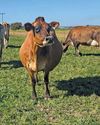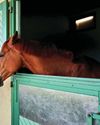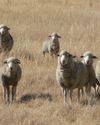Essayer OR - Gratuit
SA crocodile farmers must adapt to survive
Farmer's Weekly
|May 07, 2021
Local crocodile farmers have come under pressure due to an increase in international supply and the recent drop in demand caused by the COVID-19 pandemic. Wouter Kriel spoke to Stefan van As, chairperson of the South African Crocodile Industry Association, about the challenges facing crocodile farmers.
What is the size of the crocodile industry in South Africa?
The exact number of crocodile farms is not known, because each province issues its own permits for keeping crocodiles in captivity. In 2016, the veterinary faculty at the University of Pretoria carried out a survey of crocodile farms in South Africa and arrived at an estimated 85 facilities in existence. The production data collected from 45 of the largest commercial crocodile farms, responsible for more than 80% of total production output, indicated a breeding population of approximately 20 000 adult animals, producing an average of 165 000 hatchlings annually. Statistics show that only 68 000 skins, or 40%, are exported.
The balance do not achieve the minimum quality required for export and the reptiles are slaughtered and consumed locally, sold live to new entrants, or used as breeding stock.
How would you describe general conditions within the industry?
Two prime products are derived from commercial crocodile farming. First are the belly skins, with crocodile leather being considered the finest of all exotic leathers; these are predominantly used for belts, shoes, wallets and handbags. Second is crocodile meat, for which there is a local market.
World trade in Nile crocodile [Crocodylus niloticus] skins averages approximately 240 000 skins annually. The Nile skin trade comprises 30% of total world trade in classic crocodile skins, which consists of Alligator spp, C. niloticus, C. porosus (saltwater crocodile) and C. siamensis (Siamese crocodile) skins. As noted, South Africa exports on average 68 000 skins per annum; this represents 28% of total Nile skins traded and 9% of total world classic skins traded.
Cette histoire est tirée de l'édition May 07, 2021 de Farmer's Weekly.
Abonnez-vous à Magzter GOLD pour accéder à des milliers d'histoires premium sélectionnées et à plus de 9 000 magazines et journaux.
Déjà abonné ? Se connecter
PLUS D'HISTOIRES DE Farmer's Weekly
Farmer's Weekly
Farmers 'unilateral victims' of climate
Gyeongbuk Provincial Council member Choi Taerim has demanded immediate and substantial support for apple farmers in the South Korean province, urging immediate measures for apple farmers affected by heat damage be implemented, The Asia Business Daily recently reported.
1 min
November 21-28, 2025

Farmer's Weekly
Top agri workers celebrated in the Western Cape
Shannon Robertson, assistant livestock manager at Boschendal near Franschhoek, was crowned the overall winner of the 2025 Western Cape Prestige Agri Awards, held in Durbanville.
1 min
November 21-28, 2025

Farmer's Weekly
Smart dairying: running Jerseys on pasture
The dairy farming sector has seen innovation in milk parlour and cow comfort technology that have allowed farmers to not only yield higher volumes, but extend the productive lifespan of their cows. Albrecht de Jager told Henning Naudé about his approach to maintaining a pasture-raised Jersey herd while utilising precise data measuring technology to ensure quality milk output and optimal cow comfort.
6 mins
November 21-28, 2025

Farmer's Weekly
High-performance dairy farming in the Eastern Cape: the Rufus Dreyer approach
Dairy farming is often described as one of the most technically demanding and strategically complex branches of agriculture.
6 mins
November 21-28, 2025

Farmer's Weekly
Design your stables and camps to assist in AHS control
Keep horses away from areas where disease-carrying midges multiply, like natural pools, lakes, streams and dams, advises Dr Mac.
2 mins
November 21-28, 2025

Farmer's Weekly
The rolling chant that has echoed through SA over the past 30 years
Johan van der Nest is renowned in auction circles and was the first freelance stud-stock auctioneer to begin operating in South Africa.
10 mins
November 21-28, 2025

Farmer's Weekly
Flight from the Red Army
The fall of the Third Reich in 1945 was defined by the Red Army's brutal invasion of Germany. Mike Burgess tells how the Hoppe family trekked from Finowfurt near Berlin to Preetz in Schleswig-Holstein to escape the brutality.
6 mins
November 21-28, 2025

Farmer's Weekly
How to plan a pre-sale feeding programme
Proper feeding of animals before a sale can help producers catch the eye of buyers and increase profits, but it is important to choose the right ration.
8 mins
November 21-28, 2025

Farmer's Weekly
How women are transforming coffee production in Kenya
A group of Kenyan smallholder women farmers are transforming the country's high-value coffee sector by pooling their resources.
5 mins
November 21-28, 2025

Farmer's Weekly
Tough times ahead for SA's grain farmers
Grain farmers face a difficult year ahead with lower grain prices and high production costs
3 mins
November 21-28, 2025
Translate
Change font size
